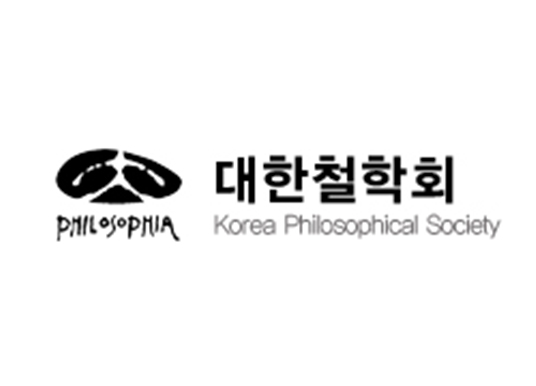COVID-19 앞에 선 인간 : 카뮈 『페스트』를 중심으로
A Person Standing in Front of COVID-19 : Focusing on Camus’ The Plague
이경희
대구가톨릭대학교
철학연구
2024, vol.172, pp. 113-135 (23 pages)
10.20293/jokps.2024.172.113
대한철학회
초록
삶에서 변화만이 유일한 상수다. 개인적으로 그리고 인류 전체적으로 우리는 이전에 경험하지 못한 것들과 더불어 살아가는, 다시 말해 낯선 것이 새로운 정상이 되는 뉴노멀 시대에 살고 있다. 이러한 이유로 낯설고 당혹스러운 상황에서도, 일상이 허락되지 않는 상황에서도, 나는 “어떻게 살 것인가”라는 질문을 던져야 한다. 이는 어떤 변화 속에서도, 어떤 재난을 당하더라도 우리는 살아남아야 하기 때문이다. 사는 동안 우리는 이와 같은 질문을 계속해야 한다. 비록 정답을 찾지 못할지라도, 애당초 답이 없는 질문일지라도. 질문한다는 것은 철학한다는 의미다. 질문을 던지고 숙고하는 과정에서 비로소 인간다운 삶, 즉 주체적인 삶을 영위할 수 있다. 그렇지 않으면 우리는 막연히 변화의 흐름에 휩쓸려버릴지도 모른다.
COVID-19에 직면하여, “생이별과 귀양살이의 감정”으로 고통 받으면서도 극도로 음울한 희망밖에 남지 않았을 때도 우리는 어떻게 살 것인가를 질문해야 한다. 그 문제와 해결의 실마리를 카뮈의 『페스트』에서 찾아보는 것은 합당하다 할 것이다. 세계 대전이 끝난 후 출간된 이 소설은 마치 우리의 현황을 그리듯 하기 때문이다. 어느 날 평범한 도시에 페스트가 발병하고 도시는 봉쇄되자 당혹한 사람들이 온갖 추태를 보였다. 감염의 확산으로 정상적인 것은 아무것도 없었다. 일부 사람들의 헌신과 지혜로 이 재난을 이겨내는 듯하지만, 한편으로 그것이 소기의 목적을 달성하고 스스로 물러가는 듯했다.
우리는 모두 페스트 속에 있다. 소설 속 인물들이 재난을 극복하는 방식은 COVID 앞에서 우리에게 어떤 안내 혹은 힌트를 제공할 것이다. 유사한 재난은 언제든 어디서 든 반복될 수 있으며, 그것과 격리된 섬은 없다는 것을 우리는 명심해야 한다. 따라서 『페스트』에서처럼 COVID에 감염될 위험을 감수하면서도 우리는 각자의 자리에서 해야 할 일을 해야 한다. 공동체를 위해, 결국 나 자신을 위해. 지금까지 이 지구상에 손잡지 않고 살아남은 생명은 없다.
Change is the only constant in life. As individuals and as a collective humanity, we are living in a new normal era where the unfamiliar becomes commonplace. We find ourselves in situations we have never experienced before. I must ask myself, “How am I going to live?”even in strange and embarrassing circumstances, even when daily life is disrupted. This is because we must survive despite any changes or disasters we encounter. We must continually ask such questions in this era. To ask is to philosophize, even if we do not find definitive answers or if these questions inherently lack answers, the process of questioning and contemplating allows us to live a truly human and subjective life. Otherwise we might be swept aimlessly by the tide of change.
We must still question how we will live in the facce of COVID-19m which has suddenly engulfed the globe, causing “feelings of separation and exile,” and leaving us with only dim hope. It is reasonable to seek clues to our problem and solutions in Albert Camus’ The plague(La Peste). Published after World War II, the novel mirrors our current situation. When a plague breaks out in an ordinary city, the city was quarantined, and its embarrassed inhabitants display all sorts of ugliness. Nothing remains normal due to the spread of the infection. The dedication and wisdom of some people help overcome the disaster, yet it seems as if the efforts step back after achieving their intended goal.
We are all within the fest. Therefore, the ways in which the characters in the novel overcome disaster could offer us hints or guidance in the face of COVID-19. Similar disasters could recur anytime and anywhere, and we must remember that no place is isolated from them. Hence, like in The plague, while accepting the risk of infection, we must each do our part, ultimately for ourselves and for the community. No life on this earth has survived without cooperation. Thus, we must do what we have to do in our respective roles, risking infection for the sake of the community and ultimately for ourselves. Cooperation is essential for survival on this planet.

